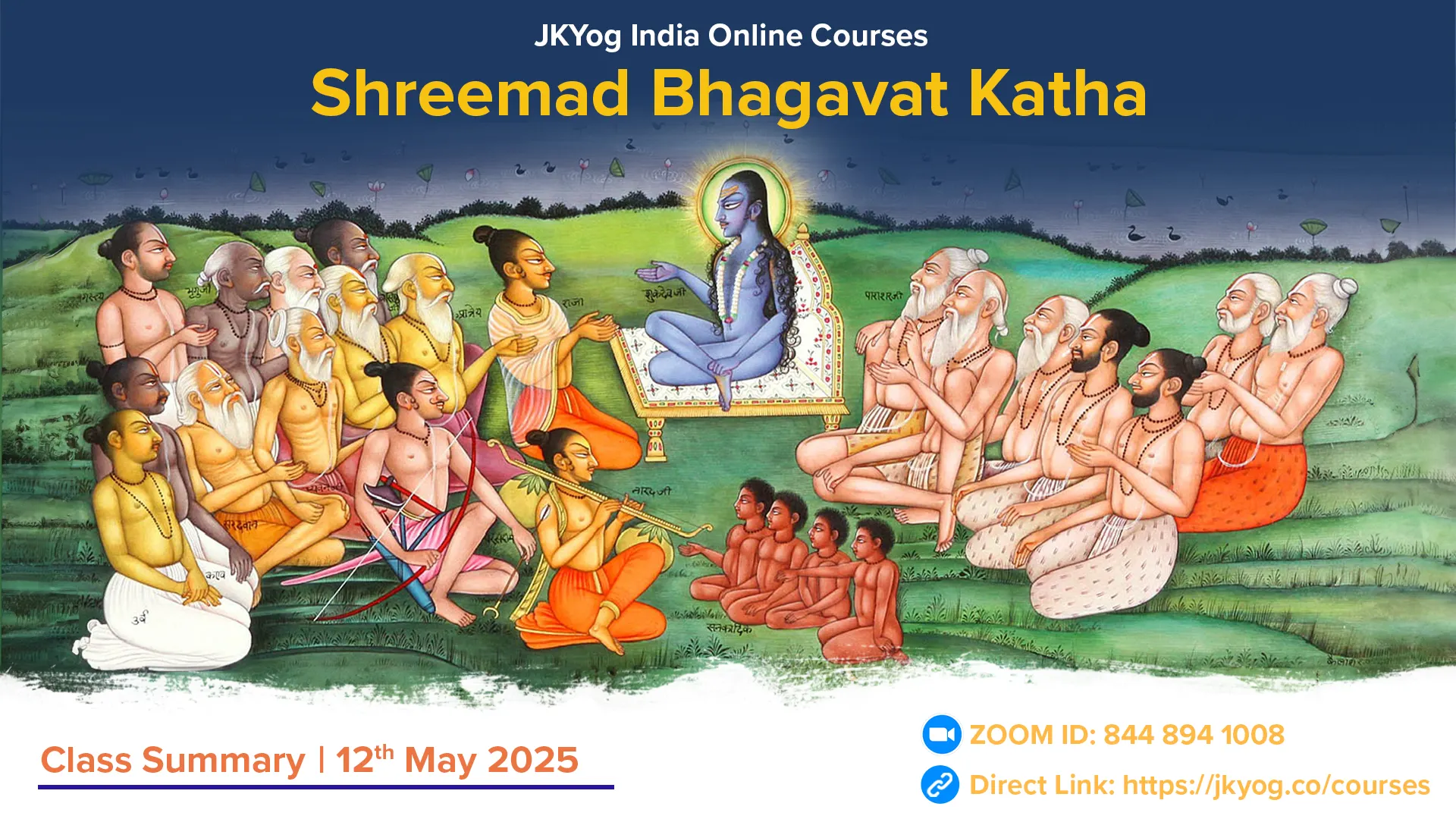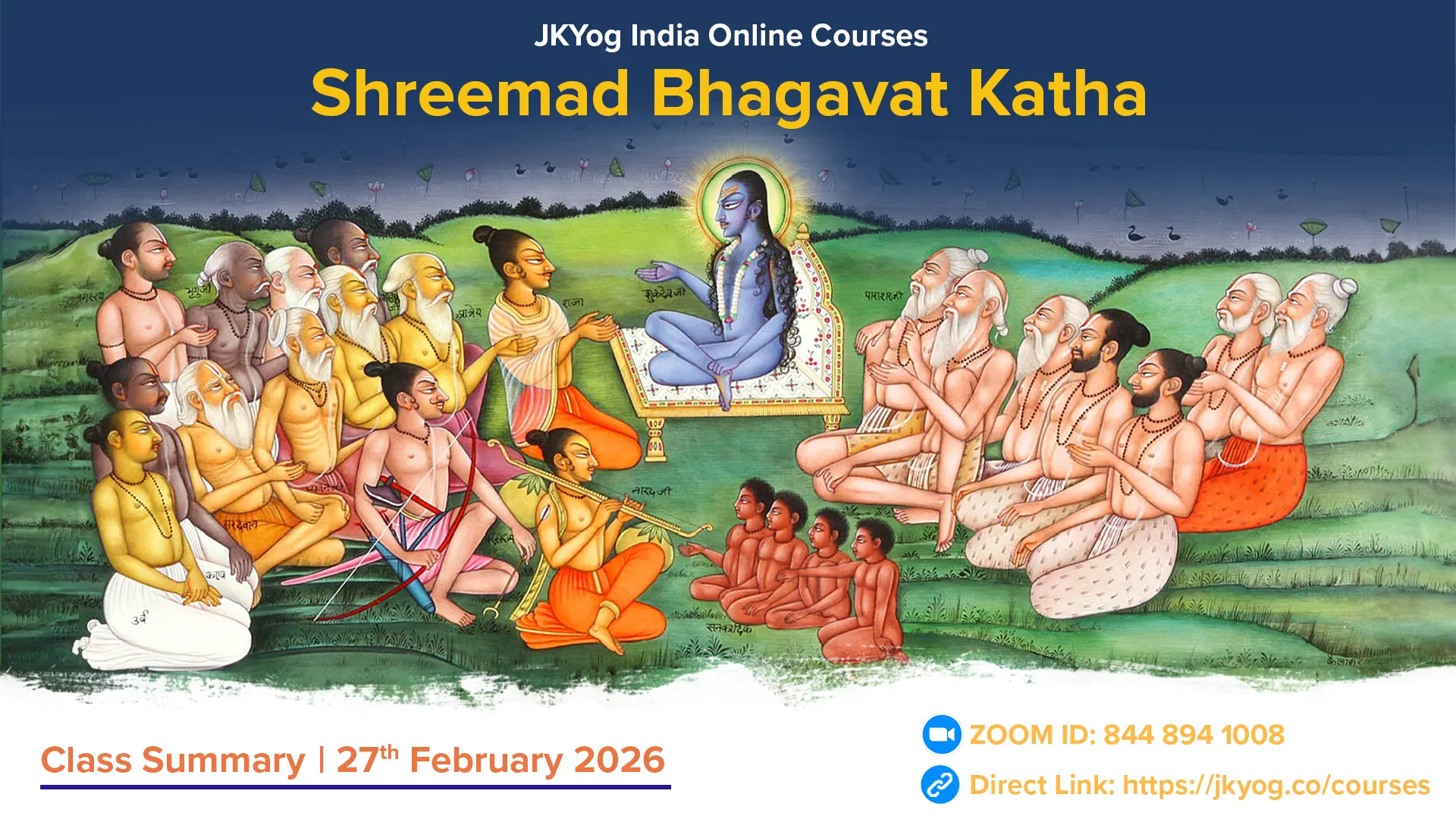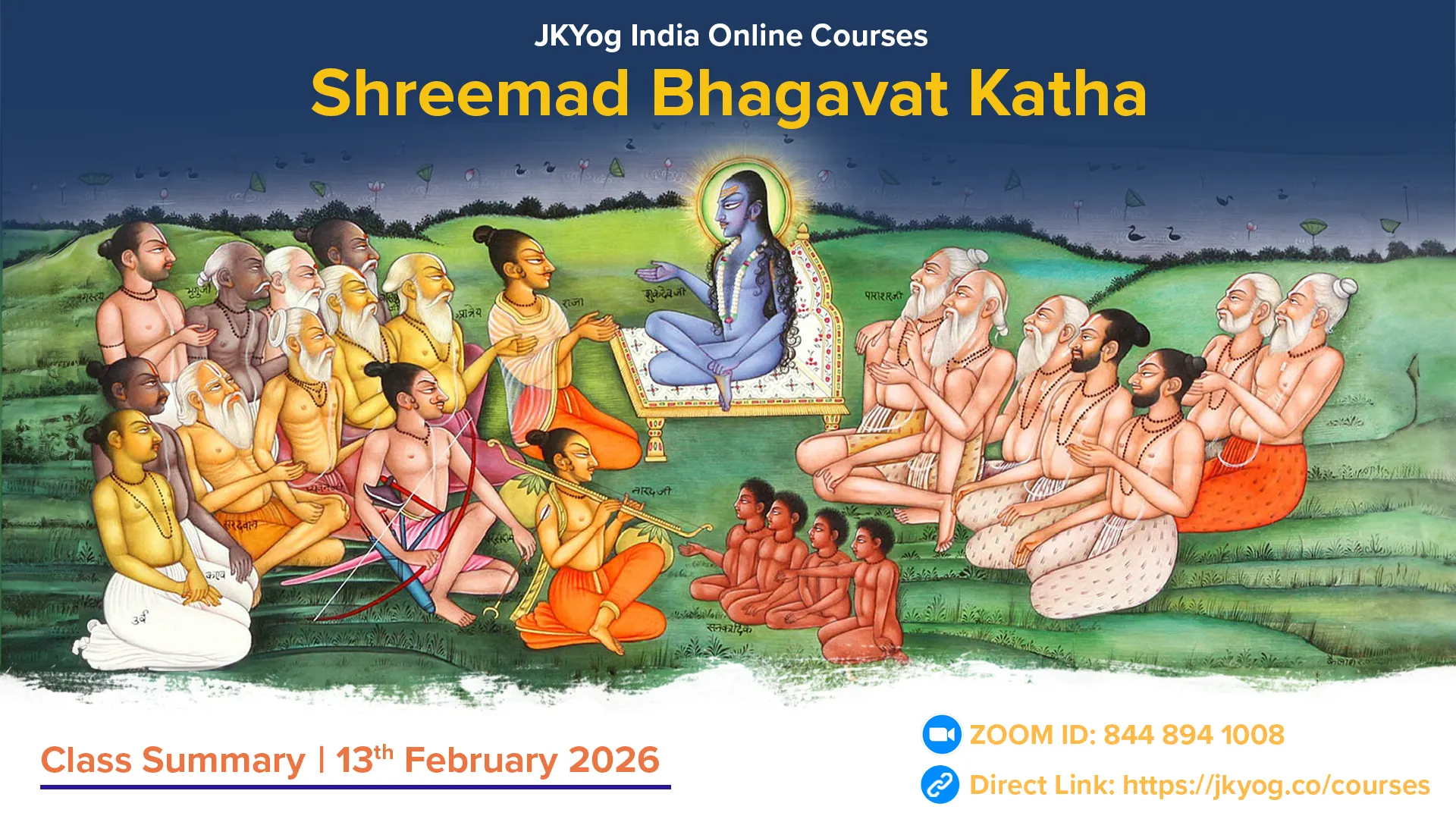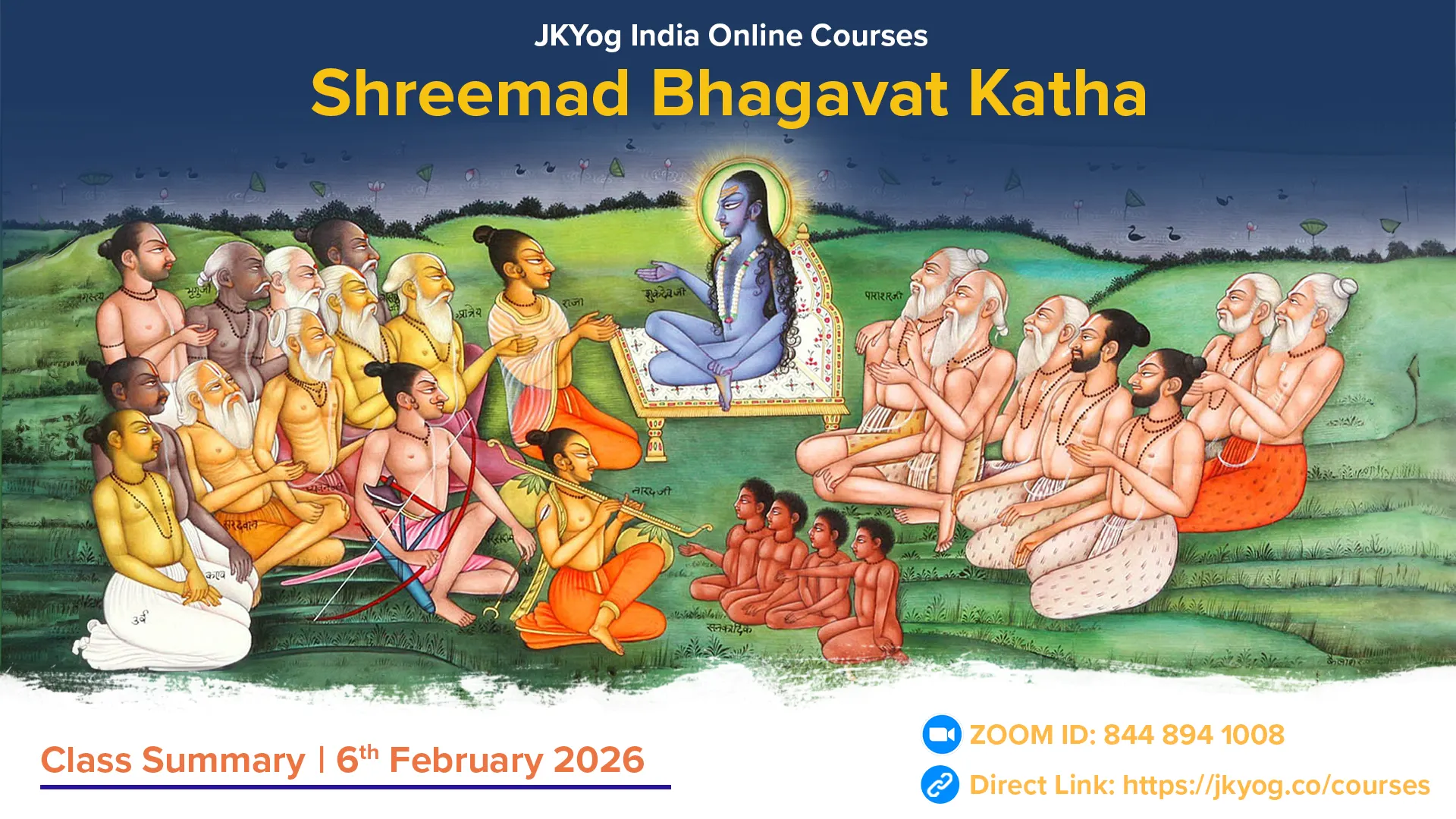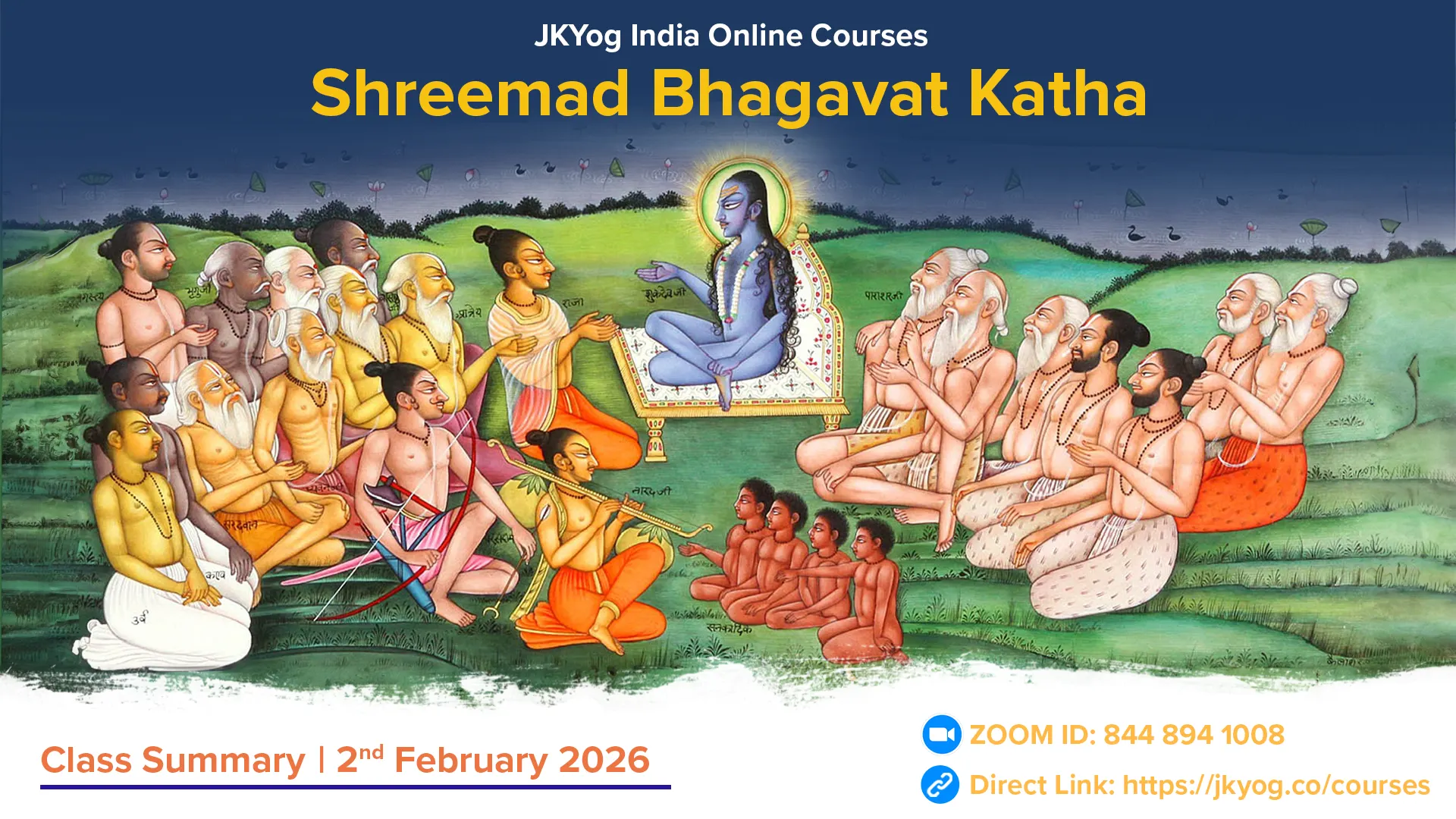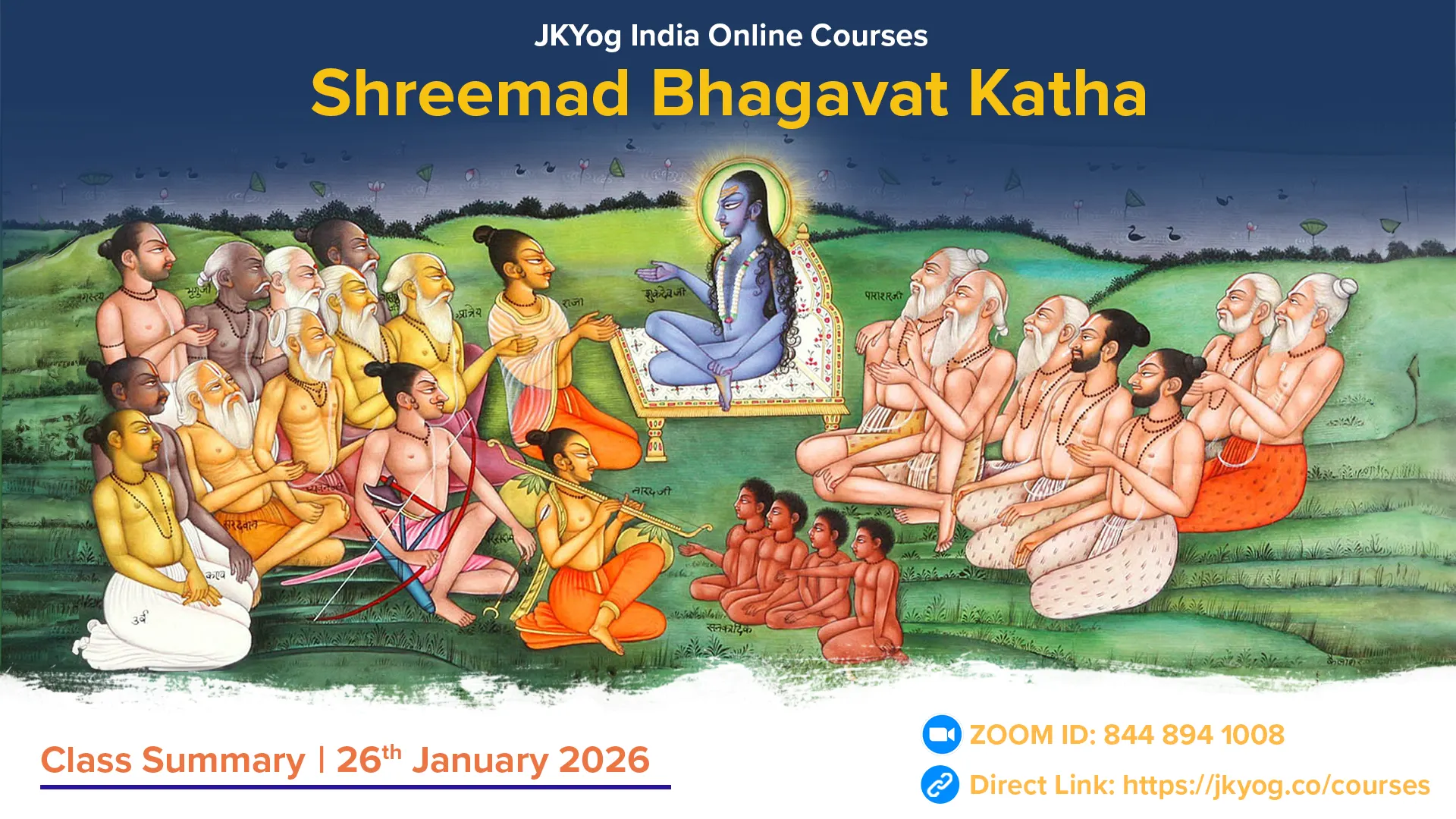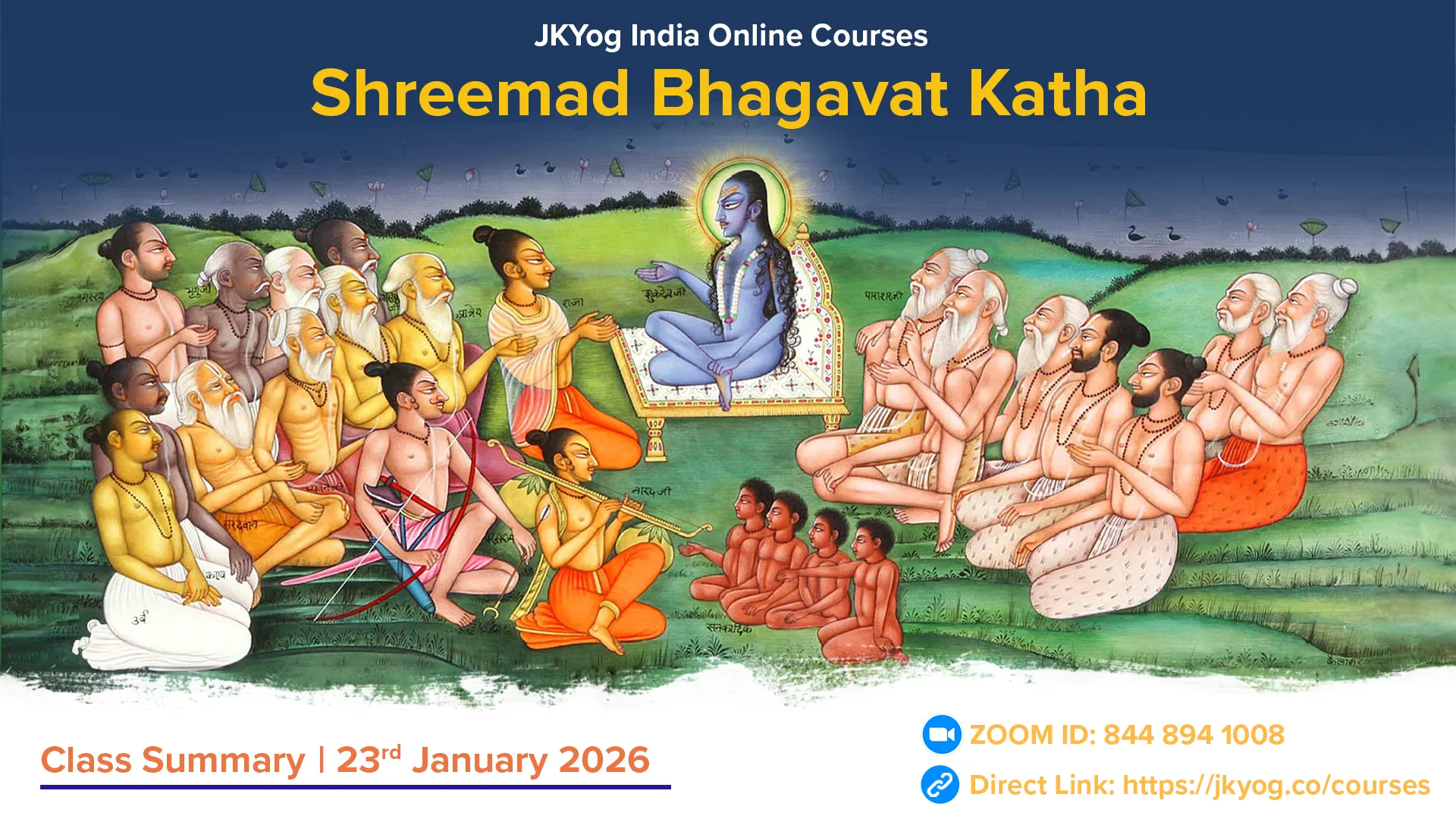Shreemad Bhagavat Mahapuran- Canto: 7, Chapters: 8
Naradji tells Yudhishthir that upon hearing Prahladji’s devotion-filled teachings about Shree Hari, the young daitya (demon) children immediately began following the path of God and stopped paying attention to the irreligious instructions of their teacher. When the teachers saw that the children’s minds were absorbed in God, they panicked and complained to Hiranyakashipu.
Seeing Prahlad’s devotion and disobedience, Hiranyakashipu was enraged and resolved to kill him. In his fury, Hiranyakashipu said, "You fool! You’ve become completely insolent. You yourself are spoilt, and now you want to spoil others too! By disobeying my command, you’ve shown great audacity. I will kill you today itself. When I get angry, the three worlds tremble. Tell me, by whose power do you dare to go against me?"
Prahladji humbly replied:
“O King of Daityas! From Brahmaji to the tiniest blade of grass, every living and non-living being is under the control of Bhagwan Shree Hari. Not only yours and mine, but the power of all the mighty beings in the world is granted by Him alone. He is the most powerful, the greatest, and the embodiment of time (Kaal-svaroop). The strength of the senses, the willpower, physical energy, patience, and faculties of all creatures are nothing but His power. It is that Supreme God who, through His energies, creates, sustains, and destroys this universe. He alone is the master of the three gunas- sattva, rajas, and tamas.
“O King of Daityas! From Brahmaji to the tiniest blade of grass, every living and non-living being is under the control of Bhagwan Shree Hari. Not only yours and mine, but the power of all the mighty beings in the world is granted by Him alone. He is the most powerful, the greatest, and the embodiment of time (Kaal-svaroop). The strength of the senses, the willpower, physical energy, patience, and faculties of all creatures are nothing but His power. It is that Supreme God who, through His energies, creates, sustains, and destroys this universe. He alone is the master of the three gunas- sattva, rajas, and tamas.
Please, let go of this ego and asuric (demonic) attitude. Make your mind equal towards all. In this world, the real enemy is not outside, but that very mind which, when uncontrolled, leads us down the wrong path.
The highest form of worship to Shree Hari is to hold a feeling of equality towards all. Those who cannot conquer the six plundering bandits- the senses: eyes, ears, nose, tongue, skin, and the mind- and still believe they have conquered all directions, are nothing but fools. But the wise and self-controlled saints, who view all beings equally, have conquered inner enemies like lust and anger, which arise from ignorance. In such a case, no external enemy remains at all.”
Enraged Hiranyakashipu said, "Hey, fool! Your madness has gone too far. It’s clear you wish to die now- because only those who wish to die speak such nonsense."
Yastvaya manda-bhagyokto
mad-anyo jagad-ishvarah
Kva asau? Yadi sah sarvatra
kasmaat stambhe na drishyate?
“Oh, unfortunate one! The God you mentioned- someone other than me- as the Lord of the universe... where is He? If He is truly everywhere, then why is He not visible in this pillar?” (Bhagavat 7.8.13)
So’ham vikattha-manasya
shirah kayaat haraami te
gopaayet harih tvaam adya
yah te sharanam eepsitam
"You boast too much! I shall now cut off your head from your body. Let’s see if that Hari-whom you trust as your refuge-comes to protect you today!" (Bhagavat 7.8.14)
In this way, Hiranyakashipu kept scolding and tormenting Prahlad, the Supreme devotee of Bhagwan, again and again. When his anger overflowed and he could no longer contain himself, he leapt from his throne with a sword in hand and struck the pillar with a mighty blow.
At that very moment, a terrifying sound arose from within the pillar. It felt as if the entire universe had cracked open. When that sound reached the realms of the Lokpals (guardians of the directions), even Brahma and the others felt as if their abodes were about to be destroyed.
Hiranyakashipu, who had just lunged with great force to kill Prahlad, was shaken by that extraordinary and fierce sound, so terrifying that it could make even a daitya tremble. He became anxious and started looking around- “Who is making this sound?” But he saw nothing inside the royal assembly.
Satyam vidhaatum nija-bhritya-bhaashitam
Vyaaptim cha bhuteshu akhileshu chaatmanah
Adrisyat aatyadbhuta-rupam udvahan
Stambhe sabhayaam na mrigam na maanusham
To make true the words of His devotee Prahlad, and to reveal His all-pervading presence in all beings, Bhagwan Shree Hari appeared within the pillar, manifesting a form so astonishing, neither fully a lion nor fully a man. (Bhagavat 7.8.18)
The form of Narasimha Bhagwan was neither that of a complete human nor of an animal — He was half-lion and half-man. His face was terrifying. His eyes blazed like fire, His hair was wild and dishevelled, His tongue stuck out like a sharp sword, and His nails were so powerful they were no less than deadly weapons. His massive body reached up to the heavens. His neck was thick and slightly bent. His chest was broad, and His waist was slim. Hundreds of arms stretched out in all directions. Using His divine weapons like the chakra, and other mighty celestial arms like the vajra, He scattered and drove away all the daityas and danavas. Seeing Him, even the devas were so frightened that they hid among the clouds.
Hiranyakashipu thought, "This must be some new form of Vishnu," but he didn’t back down even then. Armed with a mace and sword, he attacked Narasimha Bhagwan. For a while, Narasimha Bhagwan seemed to be playing with him. Then, with a loud and fearsome roar, He pounced and grabbed him, just as a snake catches hold of a mouse.
The same Hiranyakashipu, whose body wasn’t scratched even by the blow of the thunderbolt, now writhed in pain, trying to escape from the grip of Narasimha Bhagwan who took him to the threshold of the assembly, laid him across His thighs, and effortlessly tore him open with His nails — the way Garuda rips apart a venomous serpent. At that moment, Narasimha Bhagwan’s terrible and fiery eyes were impossible to even look at. He licked the corners of His wide mouth with His flaming tongue. The blood from Hiranyakashipu had stained His face and the hair on His neck red. He looked like the king of beasts, wearing the intestines of the slain enemy around His neck like a garland. With His razor-sharp nails, He tore out Hiranyakashipu’s heart and flung his body to the ground.
At that point, thousands of daityas and danavas came forward with weapons to attack Him. But Narasimha Bhagwan, using His numerous arms, His feet, and His nail-like weapons, beat them back and killed them all.
Naradji tells Yudhishthir that at that time, Narasimha Bhagwan was so furious that the energy emanating from His body shook the entire universe. The violent shake of His neck caused the clouds to scatter. The brightness of His eyes outshone the sun and all other planets. When He breathed, cyclones stirred the oceans. His deafening roar terrified the Diggaja- the guardian elephants of all directions. As His mane flew in the wind, it smashed into the flying chariots of the gods, scattering them in the sky and shaking the heavens. The earth trembled from the strike of His feet. Mountains flew up into the air. The brilliance from His body made the sky and all directions disappear from sight.
At that moment, no one had the courage to face Narasimha Bhagwan. And yet, His fury only kept rising. He climbed up and sat upon the royal throne in Hiranyakashipu’s assembly. His terrifying, radiant face, blazing with anger, was so fearsome that none dared approach Him for service or praise.
When the celestial goddesses of heaven heard the joyous news that the greatest source of pain for all three worlds — Hiranyakashipu — had finally been slain by Narasimha Bhagwan in battle, their faces bloomed with delight. They showered flowers upon Bhagwan again and again. Crowds of devas arrived in aerial chariots to witness Bhagwan's glorious form. Drums and conches were sounded. The king of the Gandharvas began to sing. The apsaras started dancing.
At that moment, Brahmaji, Indra, Shankarji, and other devas, rishis, ancestors (pitars), siddhas, vidyadhars, mahanagas, Manu Prajapati, gandharvas, apsaras, charanas, yakshas, kimpurushas, vetals, siddhas, kinnars, and Bhagwan’s attendants like Sunand and Kumud — all came near. They joined their hands in reverence and, from a respectful distance, began to offer beautiful praises to the supremely radiant and majestic Narasimha Bhagwan, seated on the throne.
Summary: JKYog India Online Class- Shreemad Bhagavat Katha [Hindi]- 12.05.2025

